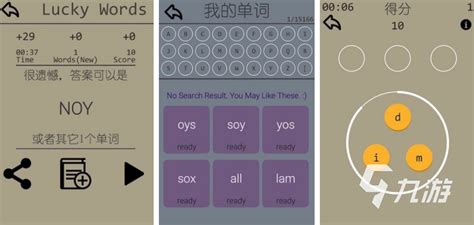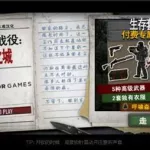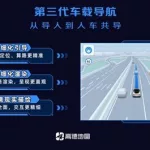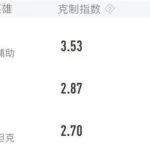好玩的英语 怎么写
be fun. 例如 Playing balls is fun. 打球很好玩.
“好玩的”用英语怎么说?
interesting就可以了.
好玩的的英语翻译 好玩的用英语怎么说
好玩的 [词典] interesting; amusing; amused; [例句]起初好玩的事很快就变成了艰苦的工作. What started out as fun quickly became hard work.
好玩的英文怎么写
interesting 译成;好玩的
好玩的 翻译成英语
interesting 或 funny 你的采纳我的动力 很高兴能够帮助你
好玩的英文词组是什么
1.interesting2.for fun3.amusing
好玩的英文短语,越多越好!~
“当猪都飞起来时”-在英语中是什么意思
“当猪都飞起来时”听以来就是不对劲。什么时候猪也长上了翅膀了呢?但是,对于英语为母语人士来说,这句话没有任何问题。when pigs fly是idiom的典型例子,和句子里单词字面的意思完全不同。让我们看看以下一些有趣的成语!
猪可不能飞起来!这是不可能的事,因此正是成语本身想表达的意思。例如,当你听到有人说,”Do you think Mary will quit her job now that she’s pregnant?”另一个人就回答,”Yeah, when pigs fly! There is no way she is giving up her career!”当他或她在使用表达方式 when pigs fly时,意思是Mary绝对不可能辞职。
Get in someone’s hair
如果你get in someone’s hair,你并没有爬到别人的头上!其实,意思是你烦扰到了他们-可能是你侵入了他们的私人空间。例如”Susan was trying to prepare dinner, but her children were getting in her hair!” 意思是Susan的孩子们在她做饭的时候烦她。如果有人烦扰到了你,你就可以说,”Get out of my hair!”
Hit the ceiling
天花板可离我们的头远着呢,那么要撞上天花板也不是件容易的事-除非你非常生气!如果有人hits the ceiling意思是他们正表现出非常生气的样子。例如,”When Carol’s son got an F on his report card, she hit the ceiling!”意思是Carol对她儿子考试不及格非常的愤怒。
Knock someone’s socks off
现在,要pull掉别人的袜子还有些可能-但是要knock掉别人的袜子要该怎么做呢?当然是通过让他们惊奇兴奋并印象深刻喽!例如,”You should see Tom’s new car! It’ll knock your socks off, it’s so amazing!”意思是Tom的车令人称奇!
Bite the bullet
如果要试着咬一颗子弹味道会是怎样呢?不太好吧。那么为什么会有人bite the bullet呢?只有在勇敢的忍受或面对困难的处境时他们才会这么做。例如”She had to bite the bullet and give in to her boss’s unreasonable demands.”意思是她在老板提出苛刻要求时表现的勇敢坚强。
Drive someone up a wall
车是不能开到墙上去的,那么谁能drive you up a wall?是惹你讨厌的人!例如,”My mom is driving me up a wall! She won’t ever let me stay out late.”意思是母亲不让我在外面呆得晚让我感到非常的讨厌。
好玩的地方用英语怎么说
好玩的地方 interesting places;fun places更多释义>> [网络短语] 好玩的地方 interesting places;Fun with local;Fun place 一个好玩的地方 A fun place;A good fun local;A Good Place to Visit 这座城市好玩的地方 Interesting places in the city
英文中有哪些比较好玩的词语?
常见的adj. 1、beautiful -ugly 漂亮的- 丑的 2、big- little 大的- 小的 3、big-small 大的- 小的 4、cheap- expensive 便宜的- 贵的 5、clean – dirty 干净的- 脏的 6、dangerous – safe 危险的 – 安全的 7、dry – wet 干的- 湿的 8、easy – hard 简单的- 难的 9、easy – difficult 简单的- 难的 10、good – bad 好的- 坏的 11、happy – sad 开心的- 伤心的 12、large – small 大的- 小的 13、long- short 长的- 短的 14、noisy – quiet 吵闹的- 安静的 15、old- new 旧的- 新的 16、old- young 老的- 年轻的 17、poor – rich 穷的- 有钱的 18、sour – sweet 酸的- 甜的 19、strong – weak 强壮的- 柔弱的 20、angry 生气的 21、bright 明亮的 22、busy 忙的 23、delicious 美味的 24、famous 著名的 25、favourite 最喜欢的 26、free 自由的,免费的 27、fresh 新鲜的 28、honest 诚实的 拓展资料一、形容词的定义表示人或事物的属性,特征或状态的词叫形容词(Adjective).形容词修饰名词,它的基本用法就是为名词提供更多的信息,它分为性质形容词和叙述形容词两类.一般放在所修饰的名词之前;若修饰不定代词,则需后置. 二、形容词在英文句子中的位置一般是放于名词前面(很好理解,修饰名词,所以放名词前面),同样也可以放于be动词后面,修饰整个句子的主语。举两个最简单的例子: 1. She is a beautiful girl. (beautiful 是形容词,修饰girl) 2. Lily is beautiful. (beautiful 形容词,放于be动词后,修饰句子的主语Lily)
那个非常好玩的英文
那个非常好玩 That’s very funny.那个非常好玩 That’s very funny.








